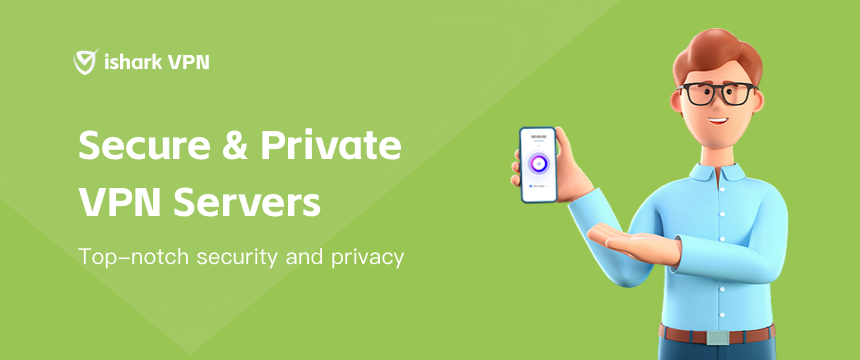Balancing Security and Speed: Optimizing VPN Performance and Safeguarding Privacy
ishark blog article
As the internet becomes increasingly pervasive, VPN (Virtual Private Networks) have emerged as crucial tools for users seeking to protect their privacy and enhance data security. However, there is often a trade-off between the performance and security of VPN.
Users are commonly concerned about achieving both high-speed connections and robust privacy protection while using a VPN. This article aims to explore how to strike a balance between VPN performance and security through optimizing configurations, selecting appropriate VPN protocols, and ensuring user privacy and data security.

I. Optimizing VPN Configurations
Optimizing VPN configurations is the fundamental step to improve both performance and security. Users can make the following adjustments based on their needs and devices:
Choose the Right Server Locations: Selecting servers that are physically closer to the user's location can reduce latency and enhance connection speed. Some VPN service providers even display server loads and latency information on their client applications to assist users in choosing the optimal server.
Keep the VPN Client Up-to-date: Regularly updating the VPN client can lead to improvements in both performance and security. Newer versions often include bug fixes and performance enhancements.
Adjust Encryption Levels: Strengthening encryption levels can enhance security but might add processing time, leading to a slight decrease in connection speed. Users should strike a balance between security and performance according to their requirements.
Enable Compression: Some VPN providers offer data compression features, which can reduce data transfer volume and consequently increase speed. However, users should be cautious as enabling compression may compromise security since compressed data might be more vulnerable to decryption.
II. Choosing Appropriate VPN Protocols
VPN protocols have a direct impact on performance and security. Different protocols possess distinct characteristics, and users can select the most suitable one based on their needs.
PPTP (Point-to-Point Tunneling Protocol): PPTP is an older protocol that provides faster speeds but comparatively weaker security. It is not recommended for situations where high security is paramount.
L2TP/IPsec (Layer 2 Tunneling Protocol/Internet Protocol Security): L2TP/IPsec combines the speed of L2TP with the security of IPsec, making it a commonly used protocol.
OpenVPN: OpenVPN is an open-source protocol known for its high security and stability, making it suitable for users with stringent security requirements.
IKEv2/IPsec (Internet Key Exchange Version 2/Internet Protocol Security): IKEv2/IPsec is a newer protocol that offers fast speeds and maintains stable connections even during network switches.
Users should choose the most appropriate VPN protocol based on their needs and priorities.
III. Reducing Encryption Levels
Encryption is the core function of VPN, but excessively high encryption levels can lead to decreased connection speeds. Users can strike a balance between security and performance by selecting appropriate encryption levels.

IV. Utilizing Dedicated Servers
Some VPN service providers offer dedicated servers specifically designed for high-speed connections, often referred to as "optimized servers" or "high-speed servers." Users can choose to connect to these servers for faster speeds.
V. Avoiding Peak Times
During peak hours, VPN servers may experience heavy connection loads, resulting in speed reductions. Users can enhance their connection experiences by avoiding VPN usage during peak times.
Conclusion:
When using a VPN, users can achieve a balance between performance and security by optimizing VPN configurations, selecting appropriate VPN protocols, and reducing encryption levels.
This ensures faster connections without compromising privacy and data security. Users should choose VPN service providers based on their specific needs and priorities to achieve the best user experience.









